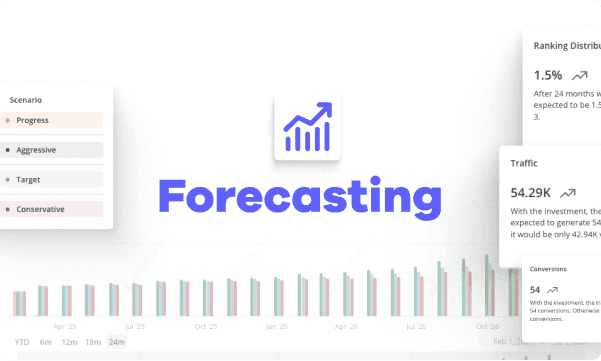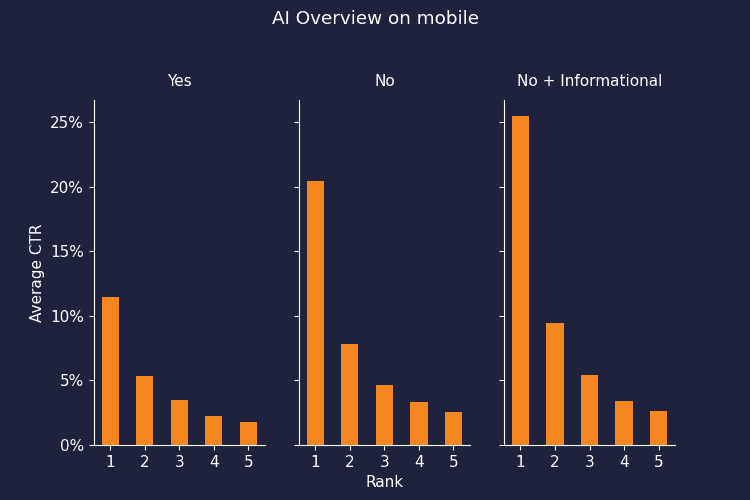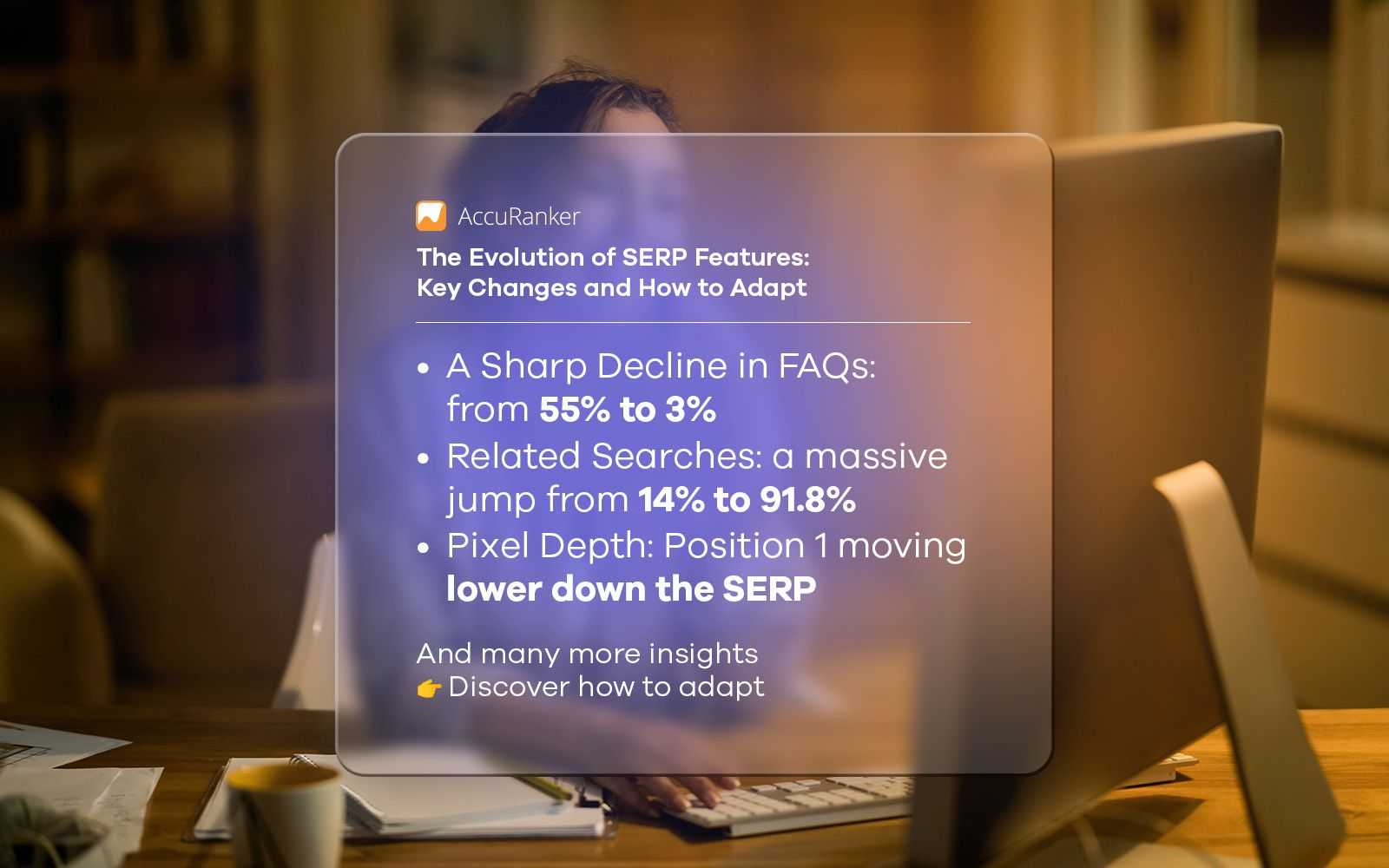The Impact of Machine Learning on Link Building
Last updated on Monday, February 19, 2024

There are over a dozen traditional link building methods. What they have in common is they all try to secure high-quality backlinks from other authoritative websites to your own website.
Being considered as a type of “vote” by other sites that yours is credible, authoritative, and trustworthy, backlinks are the key that has the impact to boost your traffic, rankings, and conversions. Despite all these benefits, link building has, until recently, been a long and time-consuming process.
The time invested in link building is akin to hiring several full-time employees to do the job. However, with the rise of artificial intelligence (AI) and machine learning (ML), this task can become more streamlined, efficient, and beneficial.
Keep reading to discover the potential impacts of using ML in your link building strategies.
Advancements in AI and ML technologies
The term—machine learning—was coined in 1959 by Arthur Samuel at IBM, where he was developing AI to teach a machine/computer to play checkers. What has emerged in those 65 years is impressive.
Today, AI and ML have taken center stage through humans’ ability to feed large amounts of quality data to machines and computers that can essentially perform two main tasks: classification and prediction.
The process requires acquiring vast amounts of “clean” data while giving the machine signals through feature engineering to better “understand” and assess the underlying problem in question.
Once this process is done, data is separated into a training set and a testing set. With the former, it is used to train the accuracy of the algorithm, while with the latter, it is used to determine the accuracy of the result produced.
The next step is to choose an algorithm such as linear regression, a decision tree, or convolutional neural networks. Every algorithm gets better by comparing its predictions to error functions, such as accuracy or mean absolute error. Ultimately, ML is a model that gets fed data to make a prediction. The better or “cleaner” the data, the higher the chances of greater accuracy in the prediction.
Why is this important? Because AI and ML technologies have the ability to automate tasks and analyze large amounts of data. In terms of their impact on transforming traditional link building techniques—such as link acquisition, analysis, and optimization—this can result in tons of hours saved and better quality results for link builders.
Another area where AI and ML shine is in content creation, an essential element of effective link building strategies. By harnessing the power of AI tools for content creation, link builders can identify relevant and engaging article titles, create outlines, and write the body of content more efficiently. For instance, AI tools can craft multiple versions of catchy titles that include specific keywords, suggest relevant placements for anchor texts, and optimize articles for SEO.
This is where integrating tools like a net worth tracker becomes invaluable. By analyzing and comparing your content with that of competitors, especially in niches related to finance or investments, AI can provide insights on how to position your articles more effectively. This could involve incorporating data from a net worth tracker to enhance the quality and relevance of your financial content, making it more appealing for backlinks and readership.
By improving the speed and quality of content creation and optimization, AI and ML tools like SEMrush, ChatGPT, and PitchBox play a pivotal role in streamlining link building processes. These tools not only help in crafting compelling content but also in executing more targeted and effective link building campaigns. The ability to quickly adapt content and outreach strategies based on AI-driven analyses—including insights gained from a net worth tracker—can significantly boost a website's SEO performance and its ability to attract high-quality backlinks.
Use cases of AI in link building
There are numerous AI marketing tools that can be used for link building purposes. However, what are some of the results that you can achieve when you put them to full use? There are three main use cases of AI in link building, although each one can have multiple spillover benefits for link building specialists. Here they are:
#1. Automation of repetitive tasks
Firstly, using AI and ML in link building can result in the automation of numerous tasks. For example, you can monitor backlinks through AI tools that ensure you always stay ahead of the game.
With these tools, you can determine whether you have received do-follow or no-follow links from a variety of websites, including monitoring what their domain ranking (DR) is and whether the backlink offers you good “link equity”.
Secondly, you can carry out competitor analysis by feeding prompts into your chosen AI tool. For instance, you can feed the tool with several competitor websites, determine what keywords they are ranking for, monitor their backlink profile, and work on strategies to strengthen your efforts so that your site performs better. As such, you can improve the accuracy of your link monitoring and analysis.
#2. Content creation
Another repetitive and time-consuming task is content creation. This involves identifying relevant and catchy article titles, creating outlines, and writing the body of content. Each of these tasks can be transformed by harnessing the power of AI tools for content creation.
One example involves asking the AI tool to craft several different versions of catchy titles, which include your seed keyword. You can also use these tools to suggest relevant placements for your anchor text within given articles.
As some of these tools offer Chrome extensions, you can speed up your process of identifying relevant anchor text for your keywords while getting the results in seconds.
Furthermore, you can use AI and ML tools to optimize your articles. You can give the tool your article’s link plus the links of competing and high-ranking articles for the same topic.
Then, ask it to analyze and compare these articles to give you an analysis of which articles contain the most information, what information may be missing from yours, where relevant content could be added to your article to improve it, and more.
This process can also take place within seconds, speeding up your processes.
#3. Creation of more targeted and effective link building campaigns
A major part of link building is building relationships with people in your industry by suggesting valuable and helpful content they can place on their websites, in exchange for links to your own.
This often involves back and forth emailing between you and your chosen organization. However, these emails can start sounding very similar after a while and you need to stand out. An AI tool, such as a chatbot, can help create more personalized emails.
For instance, you can collect information about your outreach prospect online and ask the AI tool to create a unique and catchy email through accurate and effective prompt engineering.
There are even AI tools out there which can find email addresses of prospects for you by scraping vast amounts of information from the online space. This can save you hours of trying to find new prospects to outreach to and can make your email pitches really stand out, whether you’re involved in SaaS link building or any other type of industry.
Remember to ensure professionalism by including a well-crafted corporate email signature at the end of each communication.
AI-powered tools for link building
Although the AI tool space is becoming increasingly competitive, there are three tools that truly stand out from the crowd. These are SEMrush, ChatGPT, and PitchBox. Each of these will be explored in more detail below to help you discover how you should use them and how they can help your link building efforts.
SEMrush

Semrush was founded in 2008 as a comprehensive search engine optimization (SEO) tool, which includes a backlink discovery platform. It offers high-quality backlinks data and various features to help with link building.
On the AI side, however, it also offers an AI Writing Assistant that provides an impressive 75 tools to help link builders with their content creation tasks. As quality content is the cornerstone of any successful link building strategy, SEMrush’s AI Writing Assistant truly shines.
In particular, and since it is modeled on OpenAI, it is able to generate content in 28 languages. The time, cost, and effort-saving experience that this tool offers can serve as the backbone for all link builders who want to remain relevant and authoritative in the increasingly competitive digital space.
ChatGPT

The ChatGPT AI tool emerged on the scene in November 2022. Since then, it has over 180.5 million users, surpassing major social media platforms such as Facebook, in terms of user adoption. It can help in various aspects of link building, such as content generation, email pitches, and strategic planning.
As mentioned above, and depending on the specific version of the chatbot that you are using, you can also compare and differentiate competitor articles with your own to determine where there are gaps in ensuring your content ranks higher and thus has greater chances of securing quality backlinks through relevance and authority.
Using accurate prompt engineering, you can achieve the desired results in a matter of seconds. Whether it’s an email pitch or content idea generation, ChatGPT offers a broad range of options that can help you.
PitchBox

Source: Pitchbox
An AI-powered outreach and link building platform, PitchBox was founded in 2012. It helps generate more leads, build relationships, and acquire backlinks through effective cold email outreach.
Considered an end-to-end link building productivity platform, it offers over 20 prospecting profiles. These range from search engine results page-based to imports. They also include native integration campaigns with the leading SEO tools in the industry.
Furthermore, PitchBox offers intuitive keyword research and can help you discover influencers that fall within your niche in seconds. It also integrates with major SEO providers, including Moz, Majestic, SEMrush, Ahrefs, and LRT, ensuring you only access and tap into the most authoritative publishers.
This AI tool has many use cases, but in short, it also offers a custom customer relationship management (CRM) tool for SEO and public relations professionals. However, it can also yield reports and analytics for you based on its analysis of your data. This, in turn, can significantly help you make data-driven decisions based on key insights in your niche.
Conclusion
With their ability to analyze vast amounts of data, AI and machine learning will play a critical role in link building efforts, tactics, and strategies.
With this in mind, it is expected that there will be a need for a renewed focus on creating valuable content and building genuine relationships.
With this in mind, both AI and ML will help shape and redefine the future of link building, largely due to their potential for unprecedented efficiency and more impactful campaigns.

Article by:
Nikola Baldikov
SEO Specalist
Nikola Baldikov is a skilled SEO expert who is dedicated to helping businesses thrive. He is the esteemed founder of InBound Blogging, where his expertise lies in search engine optimization and crafting effective content strategies. Throughout his career he has had the pleasure of collaborating with a wide range of companies regardless of their scale and has consistently aided them in accomplishing their objectives online. During his leisure time. He finds joy in engaging in football matches and dance routines.


